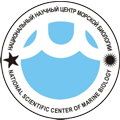A joint Russian-Chinese annual meeting was held online on November 30, 2022 to discuss a scientific project themed Marine Biodiversity Change and Ecosystem Health Assessment of Northwest Pacific Driven by Global Change1 (Russian Federation-People’s Republic of China). The meeting was organized by the co-leaders of the project: Director of the Jiaozhou Bay Marine Ecosystem Research Station, CAS, Deputy Director of the Key Laboratory of Marine Ecology and Environmental Sciences, CAS, Professor of the Institute of Oceanology, CAS, Dr. Xiaoxia Sun and Head of the International Cooperation Department of the NSCMB FEB RAS, Head of the Laboratory of Systematics and Morphology of the NSCMB FEB RAS, PhD Konstantin A. Lutaenko, and by the three partner institutes: the Institute of Oceanology, Chinese Academy of Sciences; the A.V. Zhirmunsky National Scientific Center of Marine Biology FEB RAS; and the Yantai Institute of Coastal Zone Research, Chinese Academy of Sciences. The meeting was attended by 27 researchers from Chinese and Russian scientific institutions, including the former Director of the Institute of Oceanology, CAS, Prof. Song Sun.

The Institute of Oceanology, CAS (IOCAS), and the NSCMB FEB RAS have a long history of cooperation. IOCAS is located in Qingdao, Shandong province, and is the first ocean research institute in China. Over the last years, our institutions have been working together and have achieved important results in marine science, global change, ecosystem dynamics, marine biodiversity, deep-sea research and other research areas. They regularly held bilateral seminars (online since 2020), implemented joint applied research projects, and published many joint research papers.
Several NSCMB FEB RAS scientists participated in the webinar program: Deputy Director for Science Vladimir V. Mordukhovich, PhD; Researchers of the Laboratory of Systematics and Morphology Elena E. Kostina, PhD, Yulia A. Trebukhova, PhD, Valentina V. Kasyan, PhD; and Senior Researcher of the Laboratory of Embryology Julia K. Zograf, PhD.
Two presentations were given by the Russian scientists. Konstantin A. Lutaenko made a welcoming speech and a presentation entitled "Long-term changes in benthic communities in the Sea of Japan and its trends". Julia K. Zograf presented preliminary results from "Monitoring of meiobenthic communities in the Sea of Japan".

Presentations of the Chinese scientists discussed the ecosystems and biodiversity, biogeography and estuarine bottom communities in China seas. A study on "The changes in plankton communities in the seas of China" presented by Prof. Sun Xiaoxia (IOCAS) attracted particular interest of the audience. The presentations were followed by a lively panel discussion on the project and on the creation of the project overview. We hope that cooperation and friendship between our institutions will continue to flourish as we are ready to carry out joint research and development projects on the ocean and apply their results to contribute to economic growth.

The Chinese side representatives were completely satisfied with the online meeting results. Organization of the event corresponded to the highest standards accepted by the IOCAS.
Our partners expressed their deep gratitude to the local organizing committee in the NSCMB FEB RAS. Our institutions are entering a new era of cooperation. The IOCAS administration has confirmed their intention to continue cooperation with the NSCMB FEB RAS through joint research in biodiversity and marine biology, organization of meetings and field studies. The IOCAS reaffirmed the invitation to hold the next bilateral (face-to-face) symposium in Qingdao in 2023.
1The project “Marine biodiversity change and ecosystem health assessment of China and Russia Far East coast driven by global change” intends to identify the characteristics and status of biodiversity and functional groups in China Sea (Yellow Sea and Bohai Sea) and Russia sea (sea of Japan) through field investigation, using classical taxonomy and molecular biotechnology; analyze the long-term evolution trend of biodiversity and functional groups in the two seas and their relationship with global climate change and human activities by combining with historical data. (Translator’s note)


